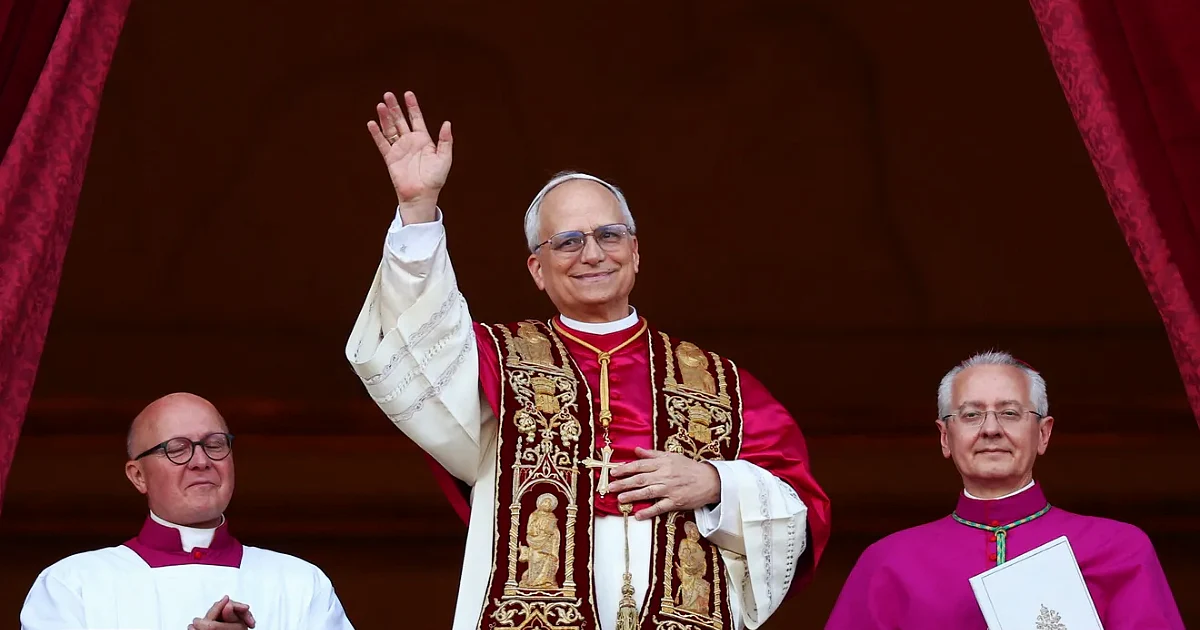The new pope: Pope Leo XIV, formerly known as Cardinal Robert Francis Prevost, marks a historic milestone for the Catholic Church. Born in Chicago, Illinois, on September 14, 1955, he is the first American-born pope and the second pontiff from the Americas, following Pope Francis of Argentina. With a strong background in Latin American missionary work, Pope Leo XIV brings a global perspective rooted in compassion, inclusion, and reform.
Early Life and Religious Formation
The new pope, Pope Leo XIV, was raised in a multicultural family with French, Italian, and Spanish heritage. He joined the Order of Saint Augustine (O.S.A.) and pursued higher education at Villanova University, earning degrees in mathematics and philosophy. He later obtained a doctorate in Canon Law from the Pontifical University of St. Thomas Aquinas in Rome. Ordained as a priest in 1982, he dedicated his life to service, teaching, and missionary work.
A Missionary and Episcopal Career in Latin America
Much of Pope Leo XIV’s career was spent in Peru, where he served as a missionary, seminary director, and eventually bishop of Chiclayo. His hands-on work with marginalized communities and his commitment to supporting migrants and the poor established his reputation as a pastoral and pragmatic leader. At age 33, he became deeply embedded in Peruvian life and later received Peruvian citizenship.
In 2023, Pope Francis appointed him prefect of the Vatican’s Dicastery for Bishops, placing him in charge of evaluating and appointing bishops globally. He was named a cardinal shortly afterward, making him a key figure in Church governance just two years before his election as pope.
A Vision Rooted in Reform and Inclusion
The new pope, Pope Leo XIV, is widely viewed as a successor to Pope Francis’s reform agenda. He shares similar values, including a deep concern for social justice, environmental responsibility, and the plight of migrants.
Fluent in English, Spanish, and Italian, he brings a multicultural and inclusive vision to his papacy. Known for his humility and sharp intellect, Pope Leo XIV prefers a quiet, consultative leadership style, encouraging dialogue with clergy and laity alike.
He is also known for his down-to-earth demeanor, a sharp yet quiet sense of humor, and openness to dialogue, especially with the laity. His criticism of political figures, such as reposting a critique of U.S. Senator JD Vance’s remarks on migrants, signals a pope unafraid to engage in moral and ethical debates beyond Church walls.
Media and Vatican Outlook on His Leadership
Media coverage of the new pope: Pope Leo XIV has emphasized his deep commitment to marginalized groups and his inclusive approach. Friends describe him as “gentle, wise, and principled,” while Vatican officials highlight his “prophetic spirit” and his ability to lead a Church that must remain relevant in a world marked by crisis and change.
While he inherits ongoing challenges, including addressing past clergy abuse scandals, Pope Leo XIV’s background shows a readiness to confront difficult issues transparently and with compassion.
The election of the new pope, Pope Leo XIV, signals continuity with Pope Francis’s vision, but with a unique American-Latin influence. As the first Augustinian pope, he brings both spiritual depth and practical experience to a Church at a crossroads. Catholics around the world now look to Pope Leo XIV for leadership that bridges tradition, reform, and global unity.
Source: bbc.com, tempo.co, cnbcindonesia.com, cnnindonesia.com
Special Photo Credit: Guglielmo Mangiapane, REUTERS


